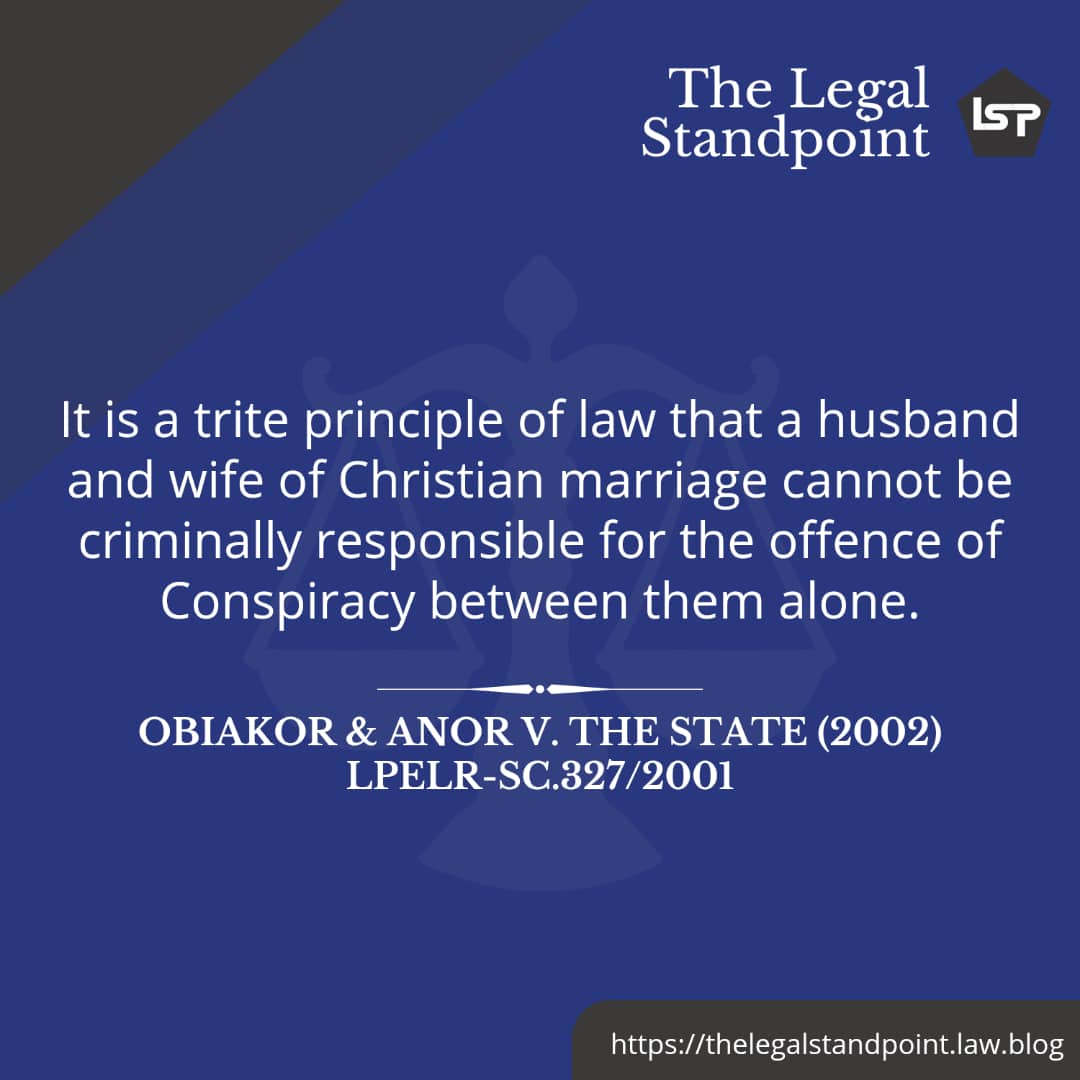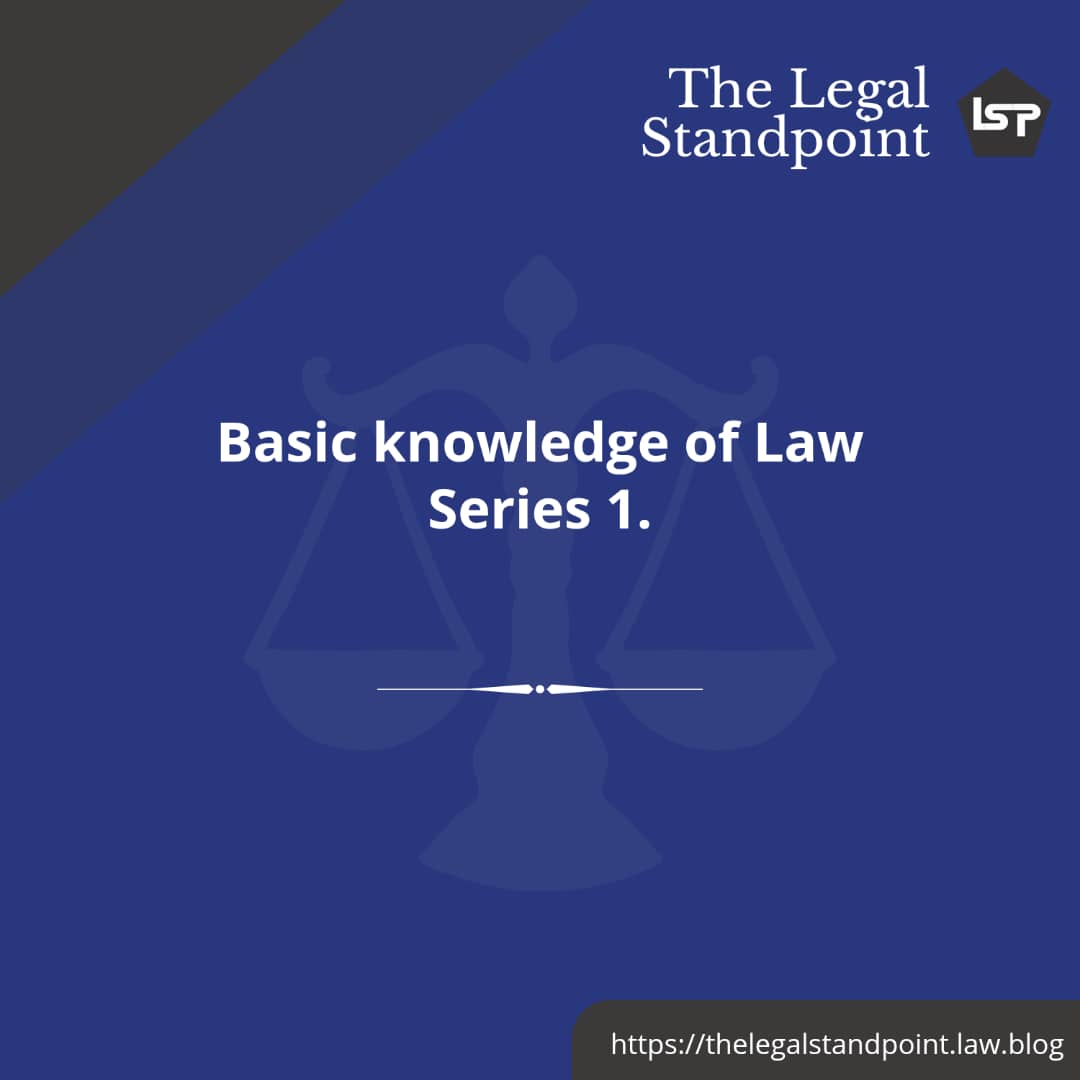
Sequel to our last article where we discussed state and federal offences here, we shall swiftly move on to discuss the position of the law when it comes to the prosecution positions of the Attorney General of State (AGS) to prosecute federal offences.
The office of the Attorney General(AG) is created by the Constitution of the Federal Republic of Nigeria (CFRN). Section 150(1) provides for the office of the Attorney General of the Federation (AGF) while section 195(1) provides for the Attorney General of the State (AGS). Speaking in the same vein, the power of the AG to institute criminal proceedings is constitutional recognized by Section 174(1)(a) and Section 211(1)(a) of the CFRN for federal offences and state offences respectively.
The AGF is regarded as the chief
law officer of the federation and the Minister of Justice while that of a state is regarded as the chief law officer of the state and the Commissioner of Justice. The general principle of law is that the AGS cannot prosecute federal offences or matters in the exclusive legislative list or enactments of the National Assembly. However, the AGS can institute criminal proceedings in respect of an offence created by an Act of the National Assembly where there is an express delegation of authority from the AGF to the AGS by way of fiat. A fiat denotes the grant or conferment of power on another by the person having complete authority on the issue upon which the fiat is given in matters of persecution.
In Anyebe v State [1986] 1 NWLR, the appellant was prosecuted by the Attorney General of Benue State, and convicted for unlawful possession of Firearms (a double barrel short gun) without a valid licence duly granted, contrary to Section 4 and punishable under Section 28 of the Firearms Act as amended by the Firearms (Amendment) Act No. 31 of 1966. Delivering the lead judgment, the then Chief Justice of Nigeria, Irikefe CJN held that: “the charges brought against the appellant arose under a Federal law and consequently it would not have been competent to prosecute him unless and until the prosecution had been expressly authorised by the Federal Attorney General”.
The Court per Obaseki JSC (as he then was) also held that: “the 1979 Constitution section 160 (l)(e) expressly gave the Attorney- General of the Federation power to prosecute in respect of any offence created by or under any Act of the National Assembly or Decree of the Federal Military Government. He is also empowered to delegate this power i.e. he can exercise the power personally or through officers of his department. The learned Attorney General of Benue State has conceded that he was not delegated by the Attorney General of the Federation and that he also is not an officer of the department of the Attorney General of the Federation. It, therefore, appears to me that the Attorney-General of Benue State was usurping the powers of the Attorney-General of the Federation by initiating prosecution of the Appellant for an offence under the Firearms Act. He had no competence whatsoever in the matter.”
It is pertinent to note that when such delegation has been made to the AGS, the offence shall be prosecuted in the name of the Federal Republic of Nigeria. This is provided for in section 268(4) of the Administration of Criminal Justice Act(ACJA 2015).
In 2016, the AGF, Mr. Abubakar Malami SAN in a bid to enhance quick dispensation of criminal cases and reduce the number of awaiting trial inmates in the various prisons across the federation, granted a general fiat to states Attorneys General to prosecute federal offences in their respective states on behalf of the AGF.
Having stated the main constitutional function of the AGS, that an express delegation is needed before any AGS can prosecute federal offences or any matter in the exclusive legislative list, the next question comes in: is there any instance where the AGS can validly prosecute federal offence without any delegation from the AGF? Yes, there is.
The principle supporting this exception is that where a federal enactment is meant to take effect as a state law, any offence so created shall be deemed to be a state offence, and in such a case, the AGS does not need the express delegation of the AGF to prosecute such a case. The principle received judicial blessing in the celebrated case of Emelogu v. State (1988) 2 NWLR. In that case, the appellant Ishmael Emelogu was convicted of an offence of robbery on 29th April, 1982 contrary to section 1(2)(a) of the Robbery and Firearms (Special Provisions Act) 1970, No. 47. The Court, after taking evidence rejected the defence of the Appellant. He was found guilty and sentenced to death.
On appeal, the main issue for determination is whether offences under the Robbery and Fire-Arms (Special Provisions) Act, No.47 of 1970 as amended by the Constitution of the Federal Republic (Certain Consequential Repeals Etc.) Act No. 105 of 1979 are Federal offences or not. The Supreme Court held that a State Attorney General can prosecute persons who violate the provisions of the Robbery and Firearms (Special Provisions) Act, 1970 because though the Act is a federal law, it was made to take effect as a state law. The court held that: by the combination of the Constitution of the Federal Republic of Nigeria 1979 and Constitution of the Federal Republic (Certain Consequential Repeals etc.) Decree No. 105 of 1979 both of which came into effect on the 1st of October 1979, the Robbery and Fire-Arms (Special Provisions) Decree No. 47 of 1970 which later became an Act by virtue of Adaptation of Laws (Re-Designation of Decrees etc.) Order SI No. 13 of 1980, operated as a state law in so far as the provisions related to the offence of Armed Robbery with effect from the 1st of October 1979 as the National Assembly did not have legislative responsibility for such offence since the offense of Armed Robbery is in the residuary list of the said Constitution. Consequently, only a State Assembly could legislate on i,t and Act No. 47 of 1970 became an existing law by virtue of section 274(4) of the 1979 Constitution and was deemed passed by the State Assembly.
This principle has been reiterated in Okoh v The State (2008) LPELR-CA/A/185C/06.
In conclusion, the general principle of law is that States Attorneys General cannot prosecute federal offences. They are only empowered to initiate criminal actions pursuant to laws made by their respective House of Assembly. Nevertheless, the exceptions are that:
1. AGS can prosecute federal offences provided the AGF gives them the permission
2. Where federal enactments are intended to take effect as state laws. The particular one being the offence of robbery.
The LegalStandpoint will be One on Monday, August 23rd, 2021. Thank you thus far. For everything!❤ See you next week.



